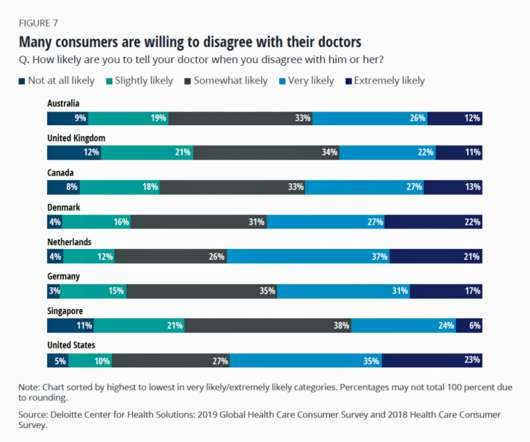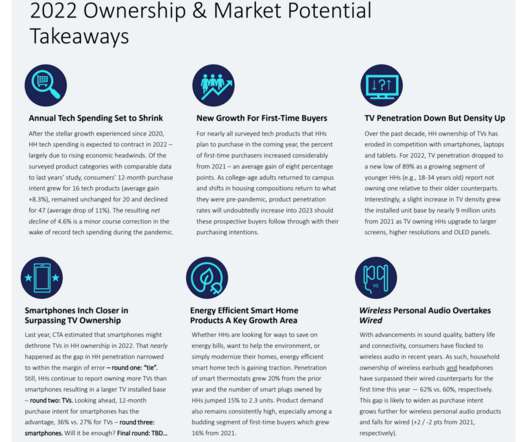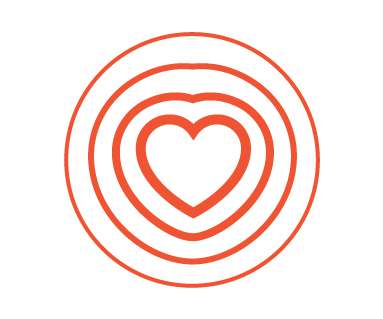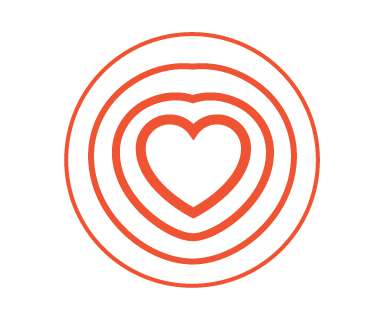Despite Greater Digital Health Engagement, Americans Have Worse Health and Financial Outcomes Than Other Nations’ Health Citizens
Health Populi
DECEMBER 2, 2019
The idea of health care consumerism isn’t just an American discussion, Deloitte points out in its 2019 global survey of healthcare consumers report, A consumer-centered future of health. The third chart arrays health consumers’ interest in price comparison tools, and it’s no surprise that one in two U.S.














Let's personalize your content